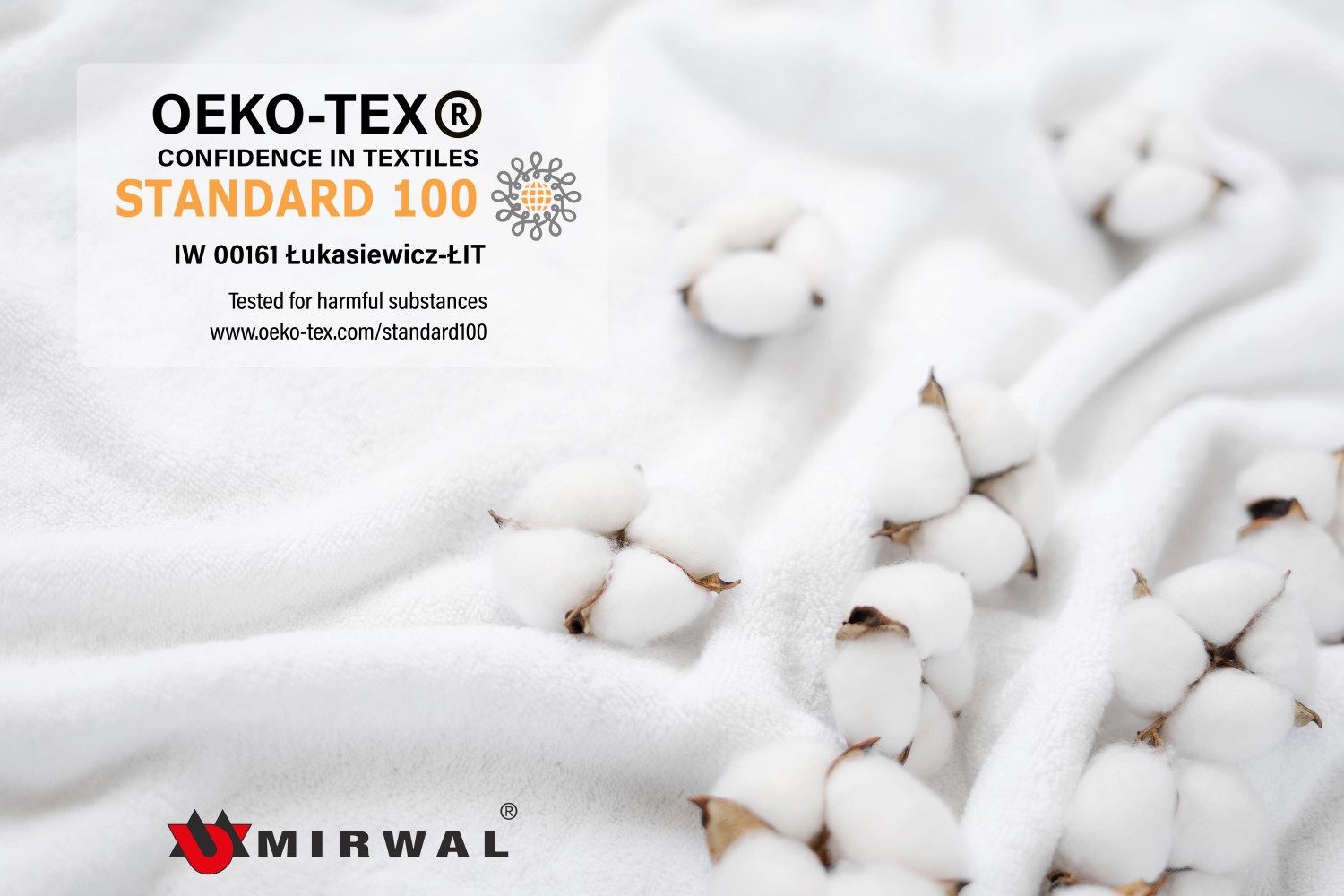Oeko-Tex Certificate
The Oeko-Tex textile certification is one of the most important standards in terms of
safety and environmental performance of textile products on the market. In this blog you will learn why it is worth paying attention to products marked with this certification and the benefits it offers.
The Oeko-Tex is an international certification system that was created to provide consumers with certainty as regards the quality and safety of the products they use, such as clothing, bedding, upholstery and others. The Oeko-Tex Certificate means that a given product has been tested for the presence of substances harmful to human health and the environment and meets the strict standards. These standards include, among others, toxicological tests, tests for the presence of formaldehyde, heavy metals and other harmful substances. By choosing products with the Oeko-Tex mark, you can be sure that the material is free of hazardous substances.

Companies that want to obtain the Oeko-Tex Certificate must meet a number of requirements regarding, among other things, the use of ecological materials and authorised chemicals. Thus, they contribute to reducing the negative impact of the textile industry on the planet. The Oeko-Tex Certificate helps companies tracking and controlling the entire textile manufacturing process, which in turn translates into better quality of products and increased consumer confidence.
The certification is split into 4 classes, which allows defining different safety and quality standards for the groups of product.
- Product Class I: Textiles intended for infants and children up to 3 years of age, such as clothing, bibs, scarves, bed covering or teddy bears. The requirements here are the most difficult to meet, and in addition, saliva resistance test is carried out.
- Product Class II: Articles that have direct contact with the skin, such as underwear, bed covering or blouses.
- Product Class III: Clothing such as jackets, sleeveless jackets or blazers that have limited contact with the skin
- Product Class IV: Articles that rarely come into contact with the human body, such as curtains or tablecloths.
Textile companies which are Oeko-Tex certified may count on many benefits. First of all, this certificate is an important marketing asset that helps standing out on the market and attract new customers. Customers are paying attention to the ecology and safety of products more and more often, which is why having the Oeko-Tex certificate can be a decisive factor when choosing a given product.
Another advantage of having this certification is the possibility of entering new foreign markets. Many countries, especially in Europe, require imported textiles to have the Oeko-Tex certificate to be able to legally sell them in their territory. That is why companies that want to expand their oversees operations should arrange for this certificate.
Responsible production is key to maintaining a balance between economic development and environmental protection.
It is worth emphasizing that the Oeko-Tex certificate protects children and infants to a great extent because they are particularly exposed to harmful chemicals. Therefore, it is important that the products they come into contact with are safe for their health. The Oeko-Tex certificate gives parents the certainty that when buying textiles for their children, they are taking care of their health.
Knitwear and printed fabrics are also tested by us for meeting the Oeko-Tex Standard 100.
In the face of growing consumer awareness and increasing expectations as for the quality and ecology of products, Oeko-Tex certification is becoming increasingly important for textile companies. It guarantees that a given product is safe for the health and the environment, which in turn translates into increased consumer confidence and the company’s success on the market. That is why it is worth to invest in obtaining the Oeko-Tex certificate and taking care of sustainable manufacturing of textiles.




